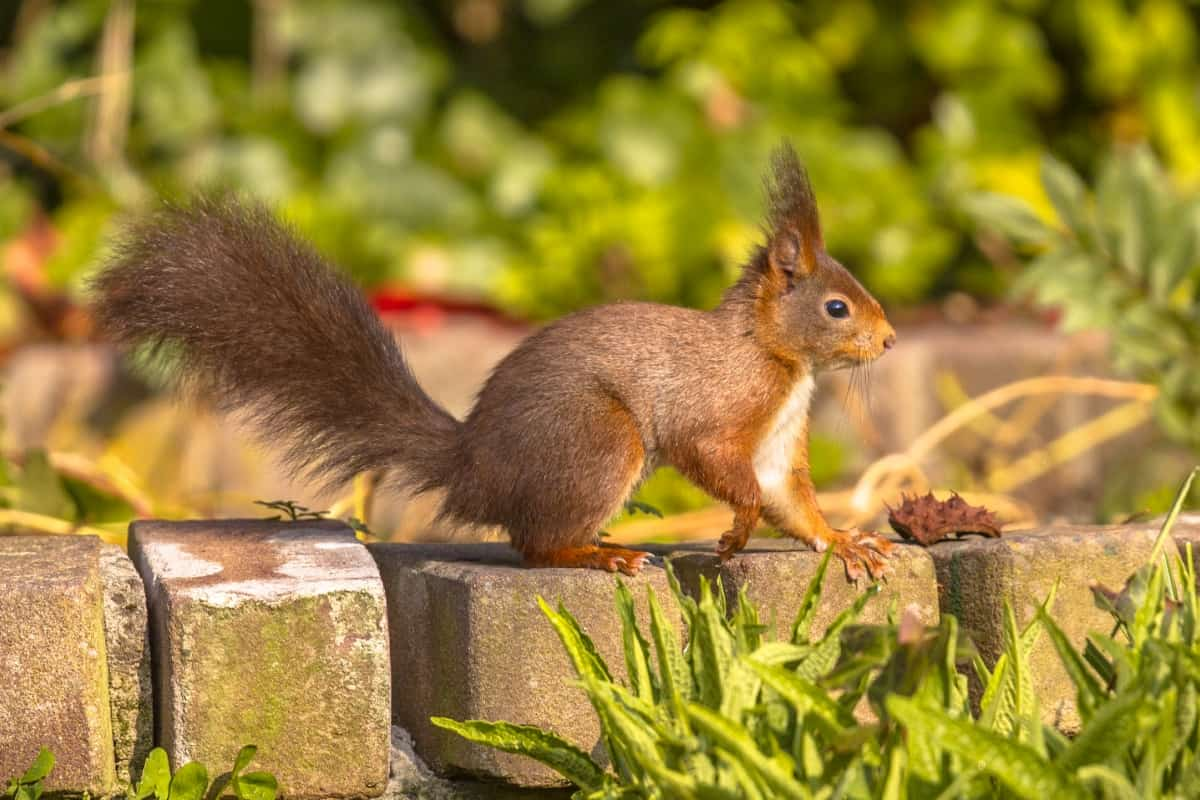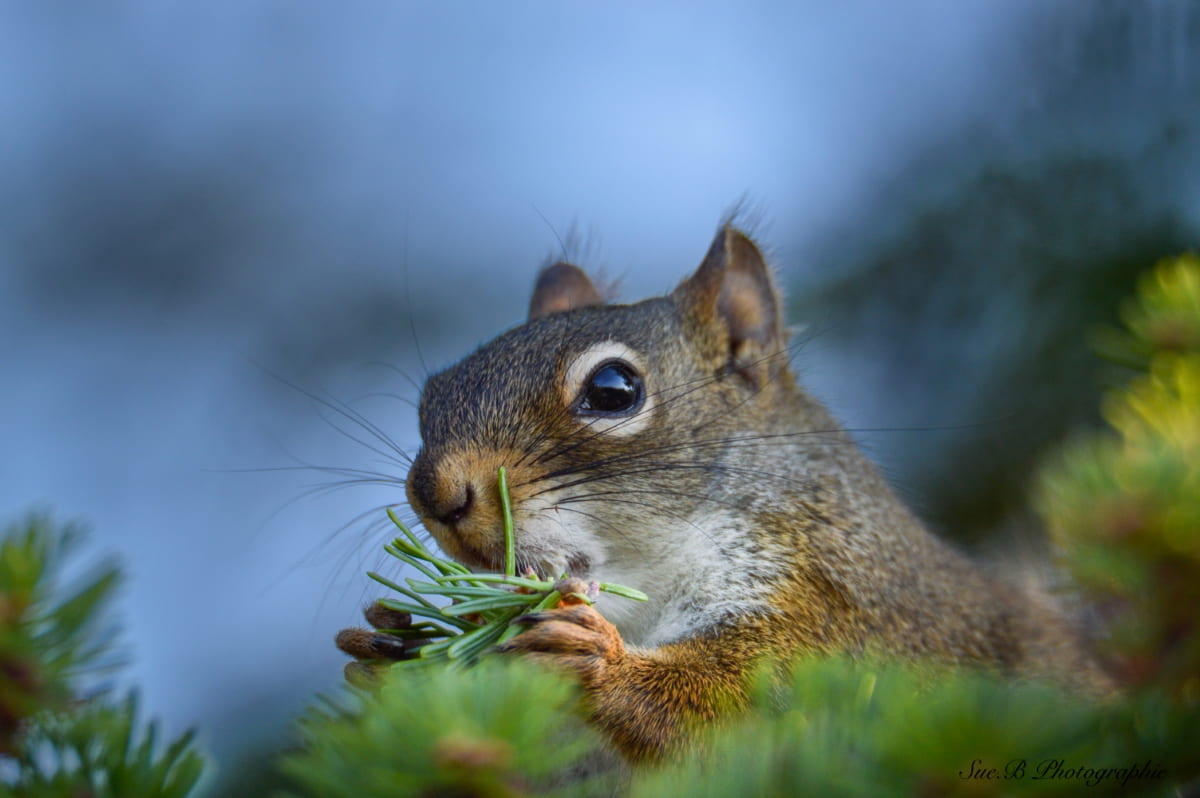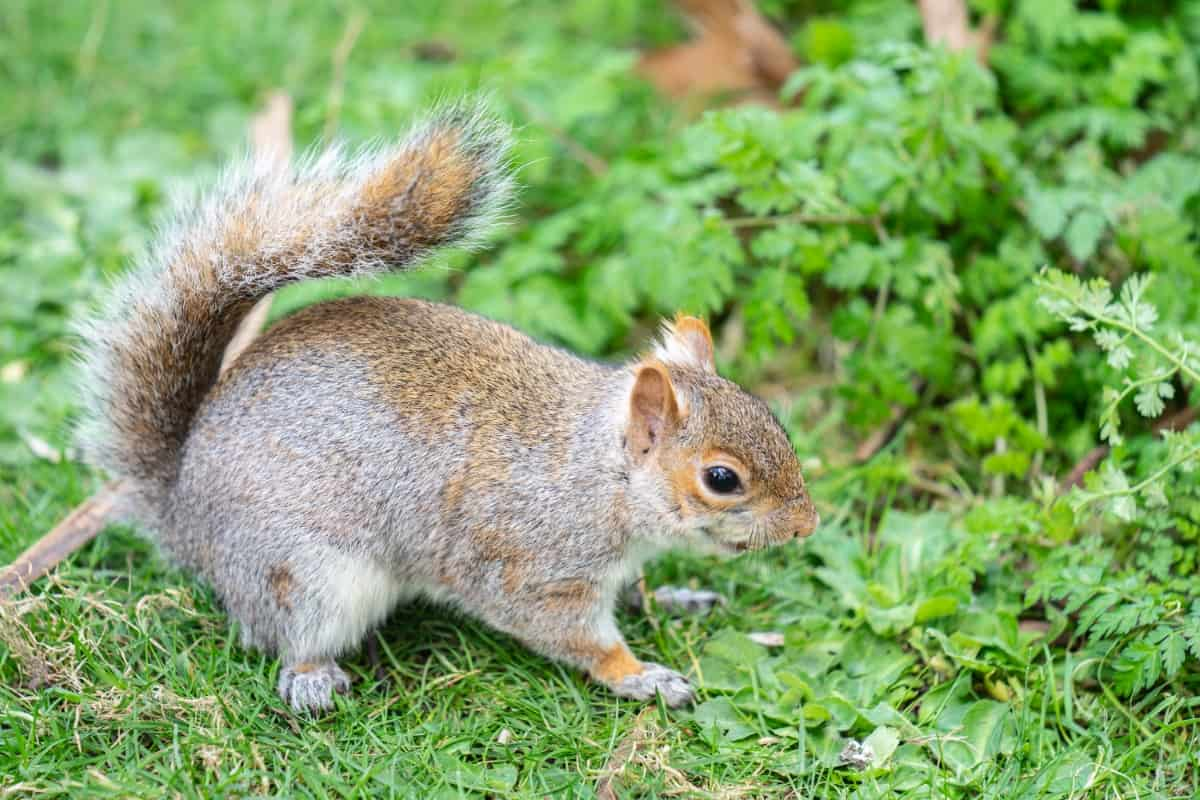Squirrels are a common sight in many neighborhoods and gardens, but not all squirrels pose a threat to potted plants. Identifying the type of squirrel causing problems is important to implement effective deterrents. Additionally, squirrels may be drawn to potted plants because they provide a source of shelter and protection from predators. Furthermore, some potted plants produce fruits or berries that are irresistible treats for squirrels.

How to Keep Squirrels Out of Potted Plants
Understanding the Behavior of Squirrels for Plant Protection
Squirrels are opportunistic feeders. They have a sense of smell that helps them locate potential food sources from afar. If your potted plants contain tasty treats like nuts or fruits, squirrels will visit them. Squirrels are excellent climbers. Their sharp claws and agile bodies allow them to jump from branch to branch easily.
This becomes problematic when potted plants are placed on elevated surfaces or near structures that offer easy access for these critters. Squirrels are curious by nature. They love exploring new environments and investigating anything that catches their attention. Your beautiful display of foliage in pots may become an irresistible playground for them.
Creating a Squirrel-Proof Barrier: Proven Methods to Keep Squirrels Away from Potted Plants
One method is placing wire mesh or hardware cloth over your pots. This prevents squirrels from digging into the soil and feasting on your beloved plants’ roots. Ensure the mesh has small enough openings so squirrels cannot squeeze through. Another option is using physical barriers like cages around your potted plants.
These enclosures provide an extra layer of protection, making it difficult for squirrels to access the plants directly. How to keep squirrels out of potted plants? Repellents and sprays made with natural ingredients such as garlic, hot peppers, or predator urine can also prove effective in keeping squirrels away from your potted plants.
Apply these deterrents regularly as per their instructions to maintain their effectiveness. Strategically placing certain plant species known for repelling squirrels around your garden can be a natural deterrent. Examples include daffodils, marigolds, hyacinths, and alliums. Providing birdhouses or nesting boxes for these predators may attract them to establish territories within range of your potted plants.
Natural Deterrents: Harnessing the Power of Plants and Scents to Repel Squirrels
How do I keep squirrels out of my potted plants naturally? One effective approach is to incorporate strong-smelling herbs and flowers into your garden. Squirrels have sensitive noses, so scents like mint, lavender, and marigold are known to repel them. You can plant these around your potted plants or use their essential oils as a spray repellent.
Another scent-based option is predator urine or strong-smelling spices like cayenne pepper or garlic powder. Remember to rotate these deterrents regularly because squirrels may become accustomed to certain smells. Mix it up by switching between different scented sprays or adding new herb varieties.
Physical Barriers: Building Fortresses for Your Potted Plants
Consider using decorative fencing or trellises around your potted plants. Not only will these add visual appeal to your garden, but they will also serve as an obstacle that squirrels are unlikely to overcome. For smaller pots or hanging baskets, try using metal cones or collars placed around the base of the plant.
Another method involves placing chicken wire over larger pots and securing it with clips or hooks. This prevents squirrels from accessing the soil, allowing sunlight and water to reach your plants. Regularly check your barriers for any signs of wear or potential breaches and make necessary repairs promptly.
Implementing Noise and Motion Sensors: High-Tech Solutions for Squirrel Control
Noise and motion sensors are high-tech solutions, and they are designed to detect any movement or sound within their range, triggering an immediate response that will startle and deter squirrels. When a squirrel enters the protected zone, the sensor will activate with either a loud noise or sudden movement. This unexpected disturbance disrupts their routine and forces them to think twice before approaching your plants.
In case you missed it: Potted Palm Care: For Palm Plants Indoor Care and Palm Plant Care Outdoor

The beauty of using noise and motion sensors is that they provide continuous protection without requiring constant monitoring. These high-tech solutions repel squirrels and provide peace of mind for plant lovers who want hassle-free gardening. Incorporating noise and motion sensors into your squirrel control strategy is an investment in convenience and effectiveness.
Utilizing Repellents and Sprays: Chemical Options to Safeguard Your Plants
There are a variety of repellent options available on the market today. Some contain natural ingredients like garlic, pepper, or mint oils, which emit strong odors that squirrels find repulsive. Spray these deterrents around the base of your potted plants to create a barrier that squirrels want to avoid. Another option is using predator urine-based repellents.
These products mimic the scent of predators like foxes or coyotes, signaling danger to squirrels and deterring them from approaching your precious plants. It’s important to note that while these chemical options can effectively deter squirrels, they should be used with caution and according to package instructions. Remember, prevention is key in protecting your potted plants from squirrel damage.
Strategic Placement and Plant Selection: Maximizing Squirrel Resistance in Your Garden
By carefully considering where you position your pots and selecting the right garden plants, you can create an environment less appealing to these furry garden invaders. Think about the location of your potted plants. Squirrels are agile climbers, so placing them near trees or structures that provide easy access can invite damage.
When selecting plants, choose varieties with natural deterrent properties against squirrels. Some examples include daffodils, marigolds, lavender, and foxgloves, known for repelling these critters with their strong scents or unpalatable tastes. Another consideration is choosing plants with prickly or spiky textures, like rose bushes or holly shrubs. These deterrence tactics may discourage squirrels from attempting a feast in the first place.
Encouraging Natural Predators: Attracting Squirrel Hunters to Your Yard
One effective and natural method of keeping squirrels at bay is attracting their natural predators to your yard. By creating an inviting habitat for these majestic hunters, you can encourage them to visit your yard regularly.
The main way to attract birds of prey is by installing nesting boxes or perches in strategic locations around your garden. These structures provide a haven for raptors while offering them a vantage point from which they can spot potential squirrel targets. This benefits the local ecosystem and creates a dynamic environment where squirrels become wary due to the constant presence of their predators.
Maintaining a Clean and Tidy Garden: Preventing Squirrel Attraction Through Proper Maintenance
By keeping your garden well-maintained, you can greatly reduce the chances of squirrels taking an interest in your potted plants. Start by regularly removing fallen leaves, branches, or debris from your garden. These items can provide shelter and easy access for squirrels to reach your potted plants. Another important aspect of proper maintenance is keeping bird feeders away from potted plants.
Placing bird feeders away from your plants will help deter birds and squirrels. Squirrels are skilled climbers and jumpers, so ensuring no easy access points could lead them straight into your precious potted plants is important. Consider using natural repellents such as garlic cloves or peppermint oil around the perimeter of your garden. The strong scents emitted by these deterrents act as a barrier against curious squirrels. These are the best home remedies to keep squirrels away from plants.
Long-Term Strategies: Sustainable Approaches for Long-Lasting Squirrel Exclusion
- Maintain a clean and tidy garden: Regularly clean up fallen seeds, nuts, and fruits from the ground. By eliminating potential food sources, you reduce the attractiveness of your garden to squirrels.
- Trim tree branches near potted plants: Squirrels often use overhanging branches as launching pads into your precious pots. Trimming these branches back at a safe distance from your plants creates a physical barrier that deters their access.
- Install motion-activated devices: Consider using ultrasonic repellents or motion-activated sprinklers around your garden area to startle and deter squirrels when they approach.
- Plant squirrel-resistant species: Choose plant varieties less appealing to squirrels due to their taste or scent characteristics. Examples include Lavender, Marigolds, and Mint.
- Implement fencing solutions: Erecting fences with small mesh sizes around vulnerable areas can effectively block access points for squirrels physically but ensure they are buried several inches below ground level too.
In case you missed it: Watering and Drainage Techniques for Potted Plants

Conclusion
The damage caused by squirrels can be significant. They may nibble on flowers and foliage, leaving unsightly holes and ragged edges. In addition to the physical destruction they cause, squirrels disrupt the balance of your potted plant ecosystem. By implementing proven methods to keep squirrels out of potted plants, such as creating barriers, utilizing natural deterrents like strong scents or thorny branches, and attracting natural predators like birds or snakes to your garden space, you can help keep squirrels at bay.
- Feed Your Flock for Less: Top 10 Tips to Save on Chicken Feed
- Ultimate Guide to Ossabaw Island Hog: Breeding, Raising, Diet, and Care
- Hatching Answers: The Top 10 Reasons Your Chickens Aren’t Laying Eggs
- Eggs and Economics: Breaking Down the Cost of Raising Backyard Chickens
- Defend Your Greens: Proven Methods to Keep Iguanas Out of Your Garden
- Ultimate Guide to Cinnamon Queen Chicken: A Comprehensive Guide for Beginners
- Ultimate Guide to California Tan Chicken: Breeding, Raising, Diet, Egg-Production and Care
- Ultimate Guide to Marsh Daisy Chicken: Breeding, Raising, Diet, and Care
- 10 Types of Chicken Farming Businesses You Can Start for Profits